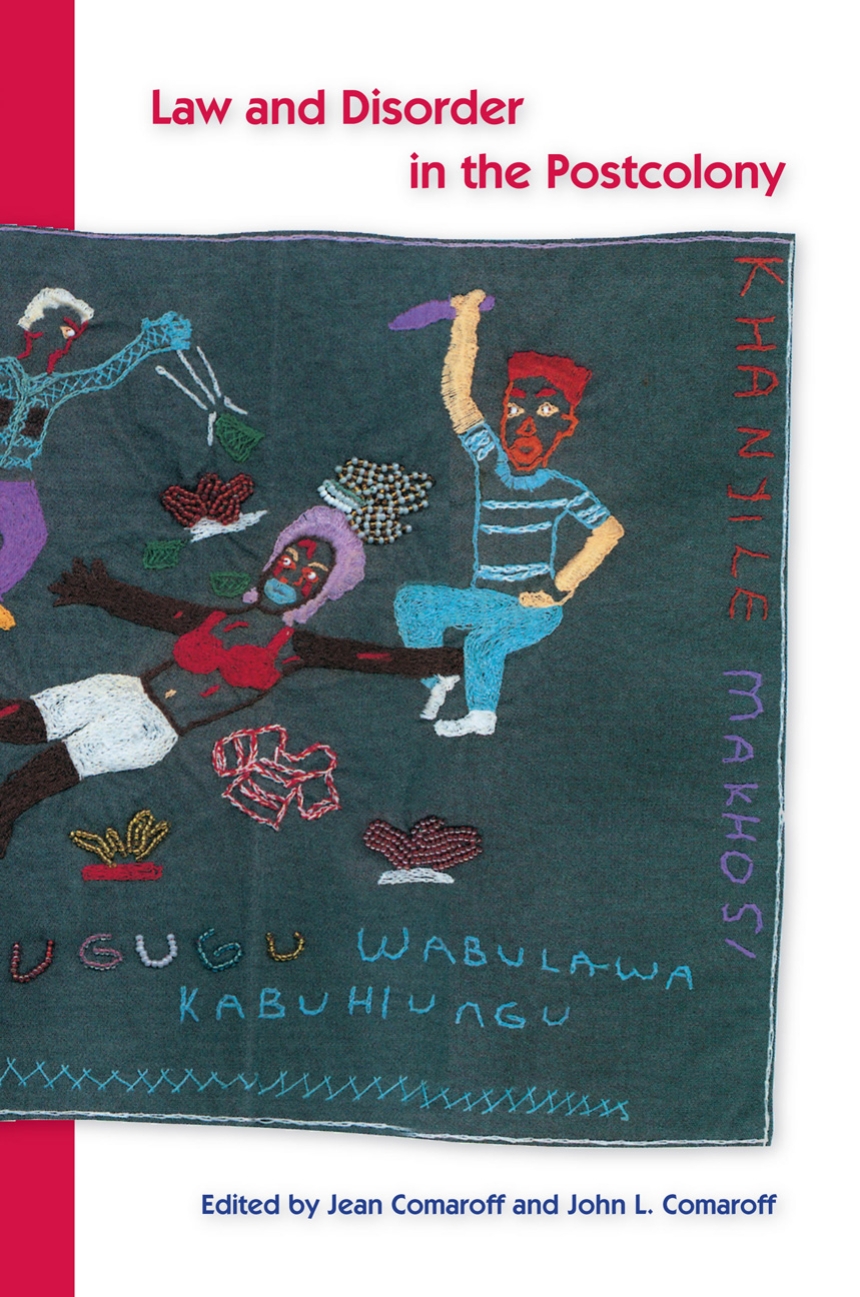Law and Disorder in the Postcolony
Are postcolonies haunted more by criminal violence than other nation-states? The usual answer is yes. In Law and Disorder in the Postcolony, Jean and John Comaroff and a group of respected theorists show that the question is misplaced: that the predicament of postcolonies arises from their place in a world order dominated by new modes of governance, new sorts of empires, new species of wealth—an order that criminalizes poverty and race, entraps the “south” in relations of corruption, and displaces politics into the realms of the market, criminal economies, and the courts.
As these essays make plain, however, there is another side to postcoloniality: while postcolonies live in states of endemic disorder, many of them fetishize the law, its ways and itsmeans. How is the coincidence of disorder with a fixation on legalities to be explained? Law and Disorder in the Postcolony addresses this question, entering into critical dialogue with such theorists as Benjamin, Agamben, and Bayart. In the process, it also demonstrates how postcolonies have become crucial sites for the production of contemporary theory, not least because they are harbingers of a global future under construction.
400 pages | 6 halftones | 6 x 9 | © 2006
Anthropology: Cultural and Social Anthropology
Asian Studies: Southeast Asia and Australia
Reviews
Table of Contents
1. Law and Disorder in the the Postcolony: An Introduction
John L. Comaroff and Jean Comaroff
2. The Mute and the Unspeakable: Political Subjectivity, Violent Crime, and "the Sexual Thing" in a South African Mining Community
Rosalind C. Morris
3. "I Came to Sabotage your Reasoning!": Violence and Resignifications of Justice in Brazil
Teresa P. R. Caldeira
4. Death Squads and Democracy in Northeast Brazil
Nancy Scheper-Hughes
5. Some Notes on Disorder in the Indonesian Postcolony
Patricia Spyer
6. Witchcraft and the Limits of the Law: Cameroon and South Africa
Peter Geschiere
7. The Ethics of Illegality in the Chad Basin
Janet Roitman
8. Criminal Obsessions, after Foucault: Postcoloniality, Policing, and the Metaphysics of Disorder
Jean Comaroff and John L. Comaroff
9. On Politics as a Form of Expenditure
Achille Mbembe
Contributors
Index
